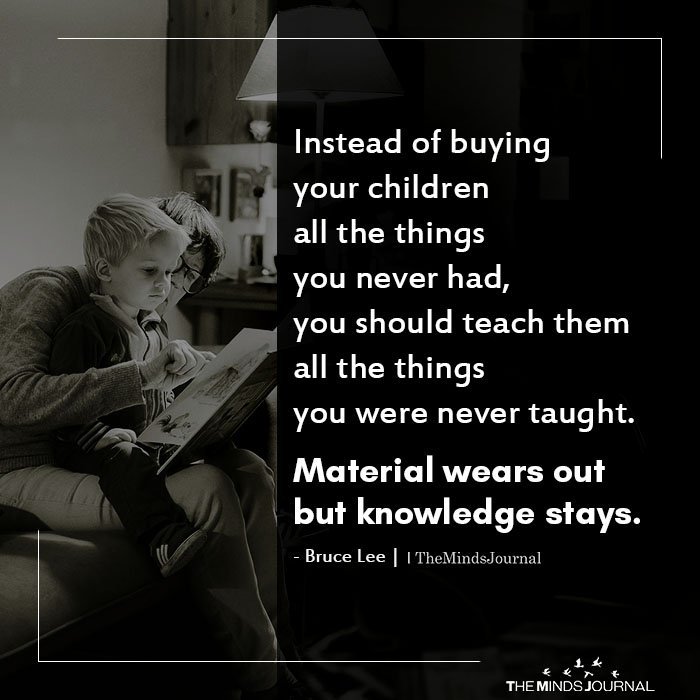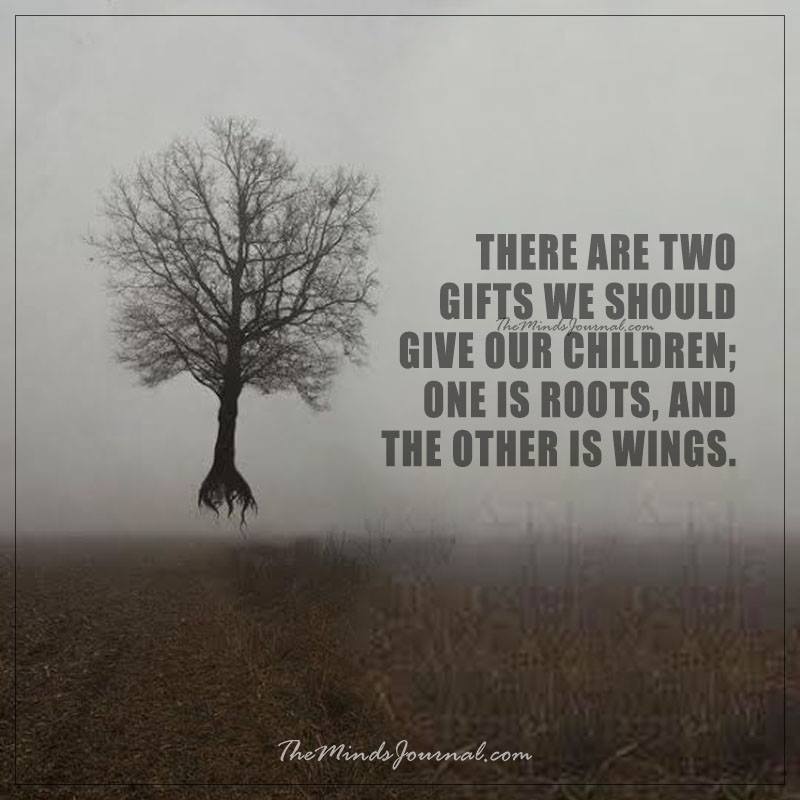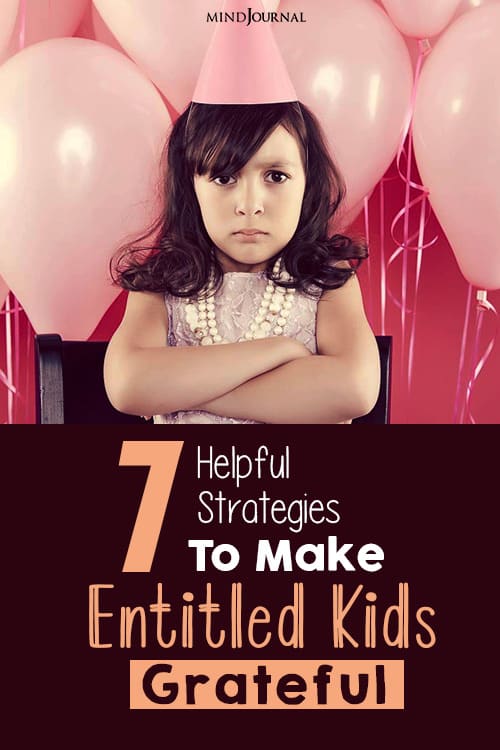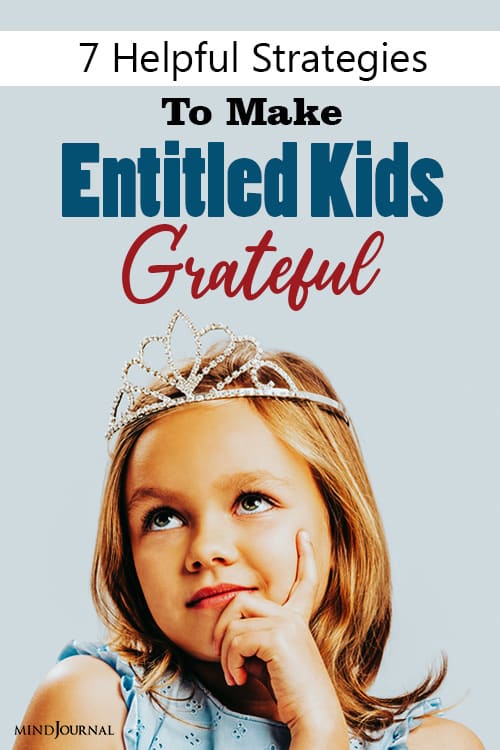Do you have ungrateful kids? Are you raising narcissistic and entitled kids without realizing it? If you believe your children aren’t appreciative and grateful for what they have and are becoming progressively spoiled, then here’s how to raise more grateful children.
Understanding entitled, ungrateful kids
What does it mean to be entitled? To put it simply, it refers to an individual’s inappropriate, undeserved and unreasonable expectations for special treatment and privileges from others. They want the best things in life to be handed to them without questions or any effort as they truly believe they deserve it.
According to a 2016 study, “Psychological entitlement is a personality trait characterized by pervasive feelings of deservingness, specialness, and exaggerated expectations.” However, such self-perceptions of being special with a sense of “inflated deservingness” can lead to a lot of distress, ego threat, disappointment, a sense of injustice, poor relationships, conflicts and even depression due to unmet expectations.
Childhood is a difficult time riddled with challenging behavior that can test the patience of even the best of parents. Children scream, shout, cry, whine, nag, beg, demand and fight. Being drowned in a sea of incessant frustrating behaviors, it can often be difficult for most parents to understand if their child is entitled and will grow up to be a narcissist or if it is simply a phase that will soon fade away.
However, if your children doesn’t feel grateful at all for all that you do for them, repeatedly acts out, has a bad attitude, behaves in an increasingly spoiled manner and constantly demands special treatment, then you probably have entitled, ungrateful kids.
Read also: How Parents Create Narcissistic Children

Do you have ungrateful kids?
Experts believe that children can develop a sense of entitlement when they are provided with whatever they want. Not only this adversely affects their sense of gratitude but also makes them feel privileged. When we as parents do everything to make them happy in every moment without teaching them the value of hard work, we keep them from being grateful and appreciating all the good things they already have.
Entitlement begins with over-praising, over-pampering, over-protecting and over-indulging as parents. The harder we try to protect our children from challenges and obstacles, the more we prevent them from being independent and resilient by learning from their mistakes. and eventually our children turn into disrespectful, ungrateful kids.
Here are a few signs that your ungrateful kids have entitlement issues as laid down by author Amy McCready in her book, “The Me, Me, Me Epidemic: A Step-by-Step Guide to Raising Capable, Grateful Kids in an Over-Entitled World” –
- Self-centered or selfish
- Refuses to help others
- Inability to cope with disappointment
- Expects or demands rewards for good conduct
- Easily shifts blame to others for their own mistakes
- Expects loved ones to save them from problems
- No concern or respect for rules
- Continuously demands more from parents & others
- Expects a bribe or treat to do tasks
If you can identify some or most of these signs in your child, then you just might probably be raising narcissistic, entitled and ungrateful kids. But there’s no need to worry as you can still take steps to curb their sense of entitlement by making them more grateful in life.
Read also: 16 Signs You Have a Sense of Entitlement Complex
How to make ungrateful kids grateful
Once you realize that your kid has a strong sense of entitlement, you may feel overwhelmed. But you need to understand that it does not necessarily mean you’re a bad parent. However, it does mean that you need to get serious about your child’s behavior and take some positive steps to help them learn about gratitude and develop gratitude in a child. Research shows that there is a significant relationship between gratitude & happiness in kids by the age of 5 years.
Studies also show that feeling grateful and counting blessings are “associated with enhanced self-reported gratitude, optimism, life satisfaction, and decreased negative affect,” in early adolescents. Hence, teaching your entitled, ungrateful kids to be more grateful, encouraging them to say “thank you” more often and asking them to be gentle with others can be a great way to prevent them from feeling entitled. Wondering how to make your kids grateful? Here’s how to raise grateful children –
1. Define clear consequences for their actions
Let your narcissistic children know that they will have to face consequences for inappropriate actions and attitude. Establish early that their bad behaviors will not go unpunished and you will not tolerate their tantrums, nags or threats. However, it is also important that you follow through when they act out.
By facing consequences consistently the ungrateful kids will learn what is acceptable and what is not, which will encourage them to change their behavior. It should be noted that positive reinforcement for desirable behavior is also recommended as it helps in establishing boundaries and future expectations. Studies show that “Positive reinforcement works exceedingly better and faster than punishment.”
Read also: 5 Kinds Of Fear-Based Parenting Every Parent Should Steer Clear Of
2. Set realistic expectations
Let your entitled children clearly understand that from now on the rules around the house will change and you and your spouse will respond differently to your child’s expectations. Let them know that your decision regarding something will be final and no negotiations or threats will be entertained on that issue.
This means you will need to be strict and bring a drastic change in yourself, your attitude and your approach in raising your child. If they keep misbehaving or arguing, simply do not give them the attention they seek and walk away. Be firm on your decision consistently. By deliberately deciding to be a different parent you can turn ungrateful kids into more grateful individuals.
3. Encourage them to “Earn”
Feeling grateful is a natural emotion, but it can be taught to children to practice gratitude and thankfulness. One of the best ways to make your entitled, ungrateful children grateful is to make them understand that they need to earn everything they want through hard work and sacrifice. You can ask them to do their homework, finish their chores or run some errands around the house if they want a new toy or a treat. For adolescents and teenagers, you can encourage them to do a part-time job, whether online or anywhere they prefer.
By learning to earn what they want, your ungrateful kids will learn to value themselves and the things they want more positively. It will also prepare them for the real world and help build a strong sense of self-esteem.
Read also: 5 Things Parents Do Who Raise Good Kids: Harvard Psychologists
4. No more over-praising or over-protecting
If you want your entitled, ungrateful kids to be more grateful and less entitled then you need to stop with over-pampering and over-parenting. Stop giving in to their every demand. Do not treat them special every time they do some mundane tasks which they are required to do.
Although you should appreciate your child’s efforts, you need to refrain from over-praising and unnecessary gift giving. Restrict your special treatments and gifts for special occasions and when they truly deserve it. Studies show that constantly praising a child’s ability instead of their effort can influence “children’s failure attribution, self-handicapping, and their subsequent performance.”
5. Make them more responsible
Encourage your ungrateful kids to give back and make contributions in some way. One of the best ways to do this is to ask your entitled kids to do household chores without having any rewards upon completion of the task. By assigning time-consuming and tedious tasks, you will help your children get in touch with reality, make them responsible and happier.
Studies have found that chores help to build perseverance, autonomy and accountability and makes children healthier and happier. It can also help them learn respect, teamwork, time management skills, life skills and provide an opportunity to bond with other family members. When you ask your children to do household chores, they learn about the importance of responsibilities and gain valuable life skills that will empower them in their adulthood.

6. Practice gratitude daily and be grateful
Teach your ungrateful kids about gratitude. As children learn the most from their parents, create a family culture of being grateful. Practice gratitude as a family by saying “thank you” more often whether to others or to your own family and by expressing what you are grateful for on a daily basis. This can be especially important when you or another family member is having a bad day.
By focusing on the good things in life even on the roughest days you will show your entitled kids how to develop a more positive mindset. Each family member can share what they are grateful for before dinner. You can also ask your child about three things they feel thankful for at bedtime. By practicing it daily, gratitude will eventually become a habit.
Read also: The Importance Of Gratitude And Best Ways To Practice It
7. Have patience
When you are wondering how to teach children gratitude, you need to have patience first. Changing your entitled kids’ behavior and encouraging them to become grateful can take time. It depends on a number of factors and the child themselves.
Instead of being overly concerned or forcing them to change their behavior, be patient with them. Encourage them to practice gratitude and use positive reinforcement. Over time, the child will change their behavior and become a more positive individual.
Are you raising ungrateful kids? Raise a grateful child instead
No parent wants to deliberately raise narcissistic, ungrateful kids with a distorted sense of entitlement. But if you feel your entitled kids are showing signs of narcissism, follow the tips mentioned above for raising grateful kids in an entitled world.
Take a more positive and responsible approach towards raising children. With proper guidance, positive and negative reinforcement and love, you can help your child grow up to become a responsible and grateful adult. But keep in mind that gratitude starts with you. So be grateful for your child and having the wisdom to raise them right.
Read also: 7 Ways To Encourage Kids with Words
Frequently Asked Questions (FAQs):
How to deal with entitled kids?
Avoid taking their behavior personally and set clear boundaries and expectations. Don’t argue with entitled kids and be patient. Learn to say ‘no’ and clearly explain the consequences of their behavior.
What causes kids to be entitled?
It typically starts due to over-parenting. When parents easily meet their kids’ every demand, over-pamper, over-protect and over-praise their kids, children can develop a sense of entitlement.
How do you deal with entitled siblings?
Treat them with empathy, compassion and respect. But also make sure to avoid them whenever possible and establish personal boundaries. Manage your reactions and seek professional help, if needed.












Leave a Reply